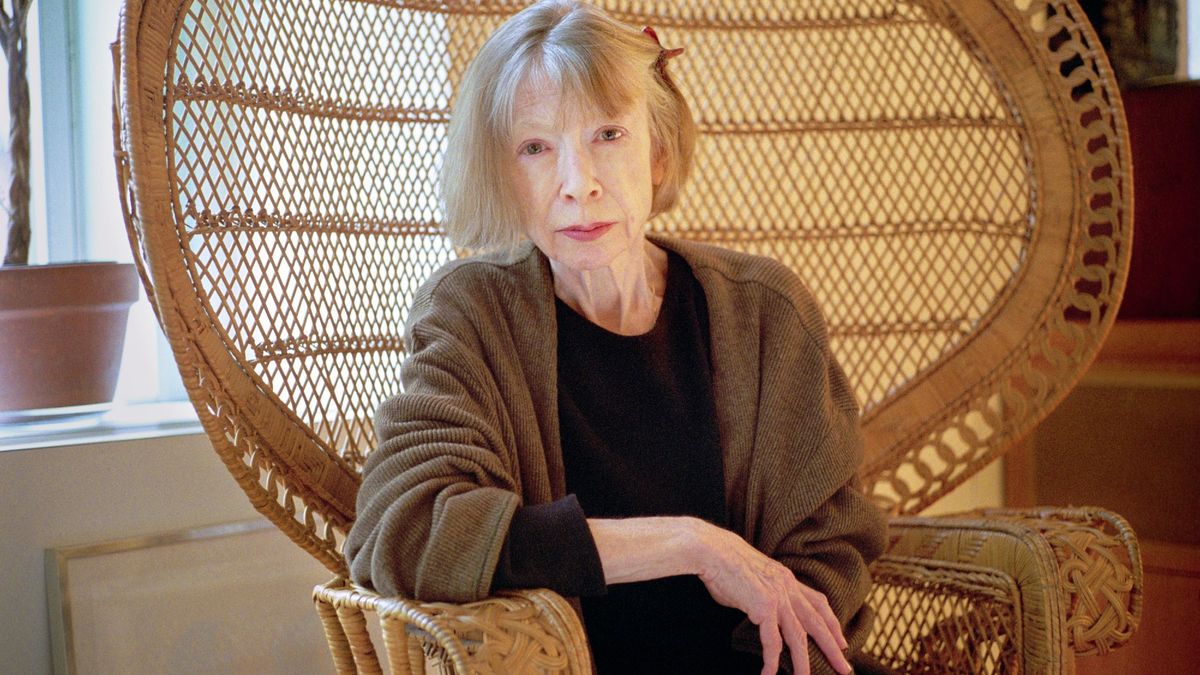Joan Didion’s Posthumous Legacy: Navigating the Complexities of Publishing After Death
Joan Didion, a towering figure in American literature, left an indelible mark with her incisive prose and keen observations of society, culture, and the human experience. Following her passing in December 2021, a renewed focus has emerged on the ethical implications of posthumous publications. The recent surge in releasing works from deceased authors like Didion raises critical questions about the responsibilities of publishers and the rights of the authors’ estates. As her literary contributions continue to resonate, navigating the complexities of publishing after death becomes increasingly urgent.
The Rise of Posthumous Publications
The trend of publishing works after an author’s death is not new. However, it has gained momentum in recent years, with notable authors such as Didion, Philip K. Dick, and others having their unfinished or unpublished works brought to light. This phenomenon can be attributed to several factors:
- Market Demand: Readers often yearn for more content from beloved authors, creating a demand for previously unpublished manuscripts.
- Literary Estates: Many authors have established literary estates that actively seek to manage and publish their works posthumously.
- Advancements in Technology: Modern publishing technologies make it easier to edit and publish incomplete works, enabling the release of previously inaccessible material.
For Didion, her deep introspection and poignant observations were enough to warrant a continued interest in her work. Her posthumous publication, Let Me Tell You What I Mean, released in 2021, consisted of a collection of essays that showcased her unique voice and perspective.
The Ethical Dilemmas of Posthumous Publishing
The surge in posthumous publications brings forth a myriad of ethical dilemmas. Central to this discussion is the notion of authorial intent. For many, the question arises: should works be published if the author did not intend for them to see the light of day? This is particularly poignant in Didion’s case, given her meticulous crafting of language and thought.
Some key ethical considerations include:
- Respecting Authorial Intent: Didion was known for her precise control over her work. The question remains whether her unpublished pieces align with her vision.
- Commercial Interests vs. Artistic Integrity: Publishers often face the temptation to release works primarily for profit, which can overshadow the respect owed to the author’s legacy.
- The Role of Literary Executors: The decisions made by literary executors or estates significantly influence how an author’s work is perceived and utilized after death.
In Didion’s case, her estate has expressed a commitment to honoring her legacy while also recognizing the public’s desire for her insights. This balance between respect and market demand is critical in navigating her posthumous legacy.
The Impact on Readers and Cultural Discourse
Posthumous publications can serve to deepen the understanding of an author’s oeuvre, offering fresh insights into their thought processes and thematic concerns. For readers, the release of Didion’s works can spark renewed interest in her earlier writings and encourage a reevaluation of her contributions to literature and journalism.
Moreover, Didion’s essays often address complex societal issues, making her posthumous works especially pertinent in today’s cultural discourse. Her keen observations on topics such as grief, identity, and the American experience resonate deeply, allowing new generations of readers to engage with her ideas.
Maintaining Literary Integrity in Posthumous Releases
Maintaining literary integrity while publishing posthumously is a delicate task. It requires careful curation and an understanding of the author’s style and voice. For Didion, her estate must consider how each piece reflects her literary ethos. This involves not just editing for clarity, but also ensuring that the essence of her writing remains intact.
Publishers can take several steps to uphold literary integrity:
- Engage with Experts: Collaborating with scholars and critics familiar with Didion’s work can ensure that the published content aligns with her established voice.
- Transparency: Being open about the editorial process and the decisions made in preparing a work for publication can help maintain trust with readers.
- Prioritize Quality Over Quantity: Rather than inundating the market with every unpublished piece, select works that genuinely contribute to the author’s legacy.
Joan Didion’s Literary Influence and Lasting Legacy
Joan Didion’s influence extends far beyond her own writings; she has shaped the landscape of American literature and journalism. Her works often explore the fragility of human experience and the complexities of identity, themes that continue to resonate in contemporary discussions. While her posthumous publications invite ethical considerations, they also offer opportunities to engage with her enduring legacy.
The conversation surrounding Didion’s posthumous works reflects broader societal questions about authorship, legacy, and the responsibilities of those who curate an author’s body of work. As the literary world continues to grapple with these issues, Didion’s contributions remain a vital part of the cultural conversation.
Conclusion: The Future of Posthumous Publishing
As we navigate the complexities of publishing after death, the case of Joan Didion serves as a poignant reminder of the delicate balance between honoring an author’s legacy and meeting the demands of a curious readership. The ethics of posthumous publishing will likely remain a contentious topic, requiring thoughtful consideration from publishers, literary estates, and readers alike.
Ultimately, as we continue to explore Didion’s work and the implications of posthumous releases, it becomes increasingly clear that her voice is not merely a reflection of her time but a lens through which we can better understand our own. The future of posthumous publishing will depend on our ability to respect the past while embracing the possibilities of the literary legacy left behind.
See more CNET Live

